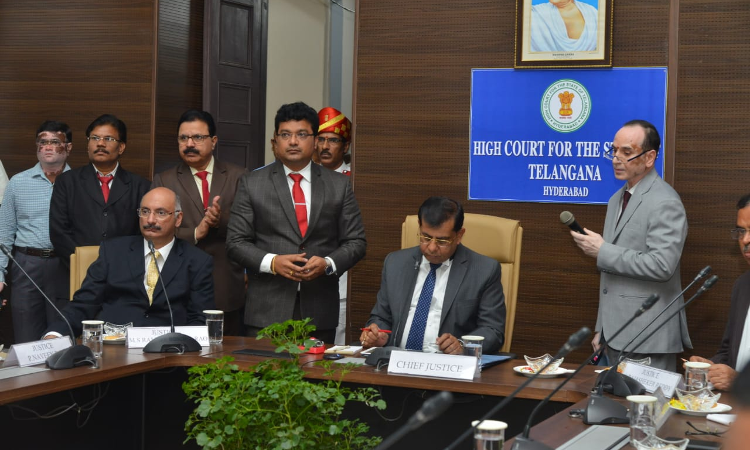Telangana HC Launches E-Services For Summons, Inter-Operable Criminal Justice System
LIVELAW NEWS NETWORK
5 Dec 2019 6:20 PM IST

Next Story
5 Dec 2019 6:20 PM IST
On December 4, the Chief Justice of Telangana High Court Raghvendra Singh Chauhan launched the "Inter-operable Criminal Justice System" (ICJS) and National Service and Tracking of Electronic Processes (NSTEP) project in all the Districts of State of Telangana through Video Conference in the presence of Judges of the High Court, Registrars of the High Court, Prl. District Judges of...
